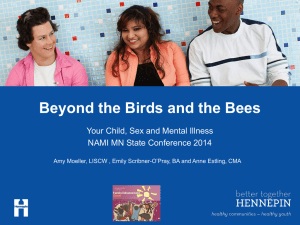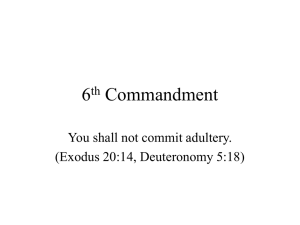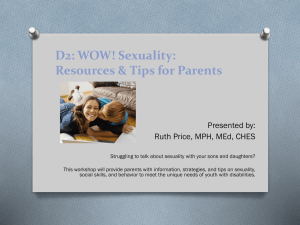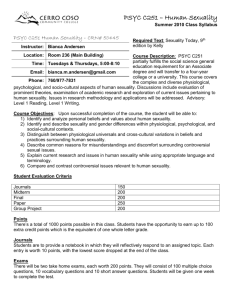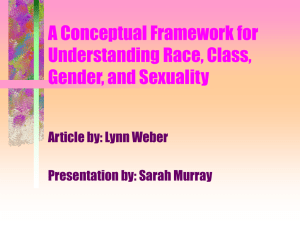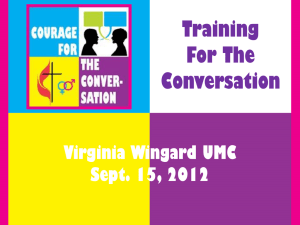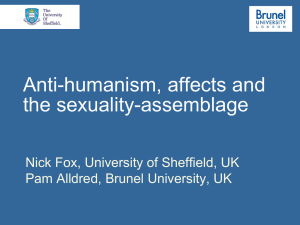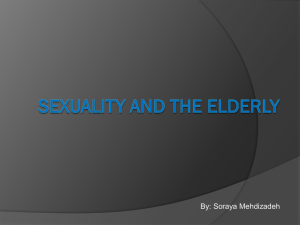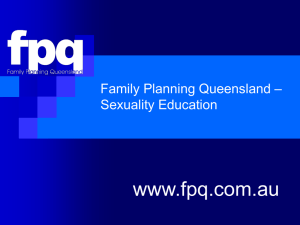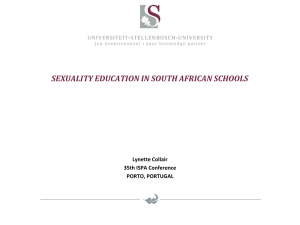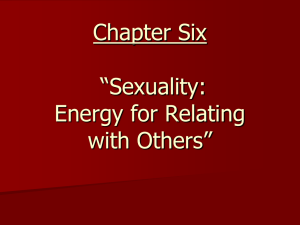presentation - Education International
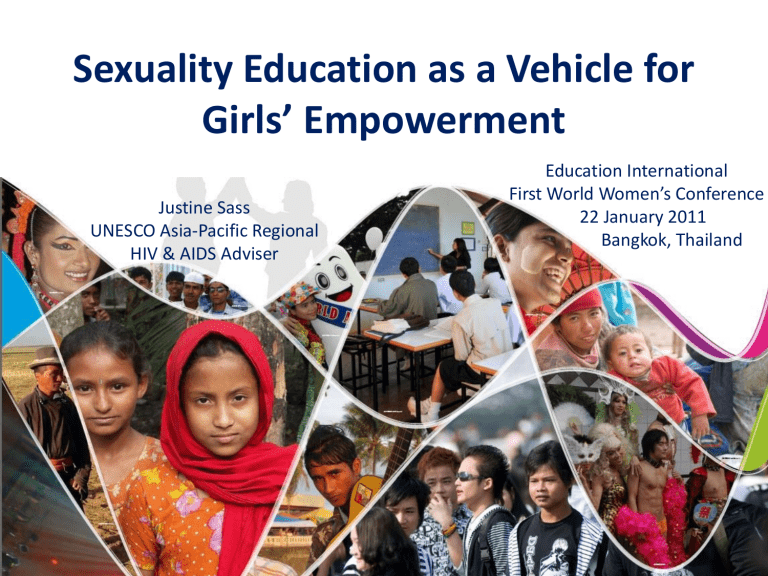
Sexuality Education as a Vehicle for
Girls’ Empowerment
Justine Sass
UNESCO Asia-Pacific Regional
HIV & AIDS Adviser
Education International
First World Women’s Conference
22 January 2011
Bangkok, Thailand
Session objectives:
• Review how sexuality education can address gender dynamics and empower girls and young women.
• Consider elements of good quality sexuality education.
• Share technical resources and materials on sexuality education for further adaptation and use at countrylevel.
It is important to acknowledge that young people guided by basic instinct,
biological changes and natural curiosity will always find ways and means to acquaint themselves with sexuality .
World Population Foundation, Pakistan. 2010. A research study on the sexual and reproductive health and rights of young people in Pakistan.
Conflicting and confusing messages about sexuality and gender
Consequences of being ill/un-informed
Unmet emotional, social & health needs contribute to:
• Unintended pregnancy and (unsafe) abortions
• Gender-based violence and coercion
• Sexually transmitted infections, including HIV
• Perpetuating gender norms about masculinity and femininity that are harmful for both boys and girls
/ young men and young women
Sexuality education aims to…
Provide structured, age-appropriate learning opportunities before young people become sexually active to
– Increase knowledge and understanding about sexuality, relationships and sexual and reproductive health
– Explain and clarify feelings, values and attitudes
– Develop or strengthen skills
– Promote and sustain risk-reducing behaviour
What can sexuality education do to empower & promote gender equality?
What can I do? game
Good quality sexuality education
• Demands a supportive learning environment
• Relies on learner-centred interactive teaching
• Engages students in the learning process
• Builds critical thinking & problem solving skills
• Helps students connect the subject to their lives
Useful resources
International Technical Guidance on Sexuality Education
• Provides an update on the evidence on curriculum-based sexuality education programmes for young people
• Outlines a “basic minimum package” of topics and learning objectives for CSE programme for those aged 5-18+
• Provides technical advice on the characteristics of effective programmes and how to implement them
Useful resources
• UNESCO (2010) Levers of success:
Case studies of national sexuality education programmes
• The Population Council (2009)
It’s All One Curriculum
(2 Volumes)
• Plan International (2010) Sexuality education in Asia: Are we delivering?
• IPPF (2010) – Framework for CSE
• IPPF (2010) – Healthy Happy and Hot
• IPPF (2009) From evidence to action: Advocating for CSE
